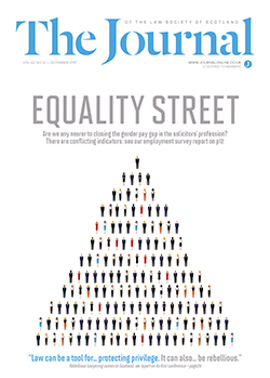Employment: Climate-conscious employment contracts?
COP26 has returned climate change to the foreground. As part of tackling the issue, should employers be incorporating net zero clauses into their employment contracts?
With COP26 generating global attention, there is mounting pressure on companies and individuals to respond to the climate crisis. While businesses have been criticised for contributing to the crisis, many have put reducing emissions and becoming net zero at the forefront of their environmental, social and governance (“ESG”) agenda. However there are calls for this commitment to be extended into all aspects of business. The Chancery Lane Project, a pro bono initiative which develops contracts and model legislation to help combat climate change, has recently published a Net Zero Toolkit to address this demand.
Its authors describe the Net Zero Toolkit as “a set of practical tools to help professionals implement climate-conscious clauses in their organisation”. The intention is for companies to take a proactive, inclusive approach to incorporating a net zero focus in all areas of their business. The Project has published model clauses and policies spanning a wide range of areas, including commercial transactions, construction, dispute resolution, intellectual property and insurance. Businesses are encouraged to adopt the clauses in full or adapt their existing contracts and policies. The toolkit includes a new model whistleblowing policy and employment handbook for climate-conscious employers.
Green employment contracts?
“Elliot’s Handbook” is the Project’s template employment handbook, which it describes as setting “a tone for ambitious climate action involving every employee”. Handbooks are certainly used to set the tone of an organisation, and this handbook aims to explain the employer’s wider framework for achieving net zero, while also making individual employees responsible for helping to achieve this.
The model clauses within the handbook cover a wide range of topics. It begins with the company’s general commitment to achieving net zero, and the central role individual employees have in this. It also sets out more specific and tangible requirements of employees. While the intention is admirable, given the traditional scope of employment contracts some of these clauses are likely to be perceived by many as unusual and potentially intrusive, and therefore unlikely to be adopted by the mainstream for some time.
The expenses policy is a prime example. It begins by stating that meetings with clients should be virtual by default to avoid unnecessary travel. With the adoption of hybrid working as the norm across many sectors, this is unlikely to raise eyebrows. One clause states that annual appraisals may include consideration of the business journeys taken.
Another clause, however, states that employees should choose vegetarian or vegan options from menus when entertaining clients. If employees choose a meat dish, they will not be able to claim expenses. It is likely many will see this as invasive, irrelevant to an employee’s ability to perform their role and encroaching on personal choice.
The model clauses on travel are also likely to be controversial. For example, to contribute to “improving air quality in the communities we live and work in”, employees will not be allowed to park diesel cars in the company car park. Would such a policy actually reduce the use of diesel cars, or risk pushing employee parking out to nearby streets and thus upset neighbours? Employees are also given additional holiday entitlement if they elect to take their annual leave domestically rather than travelling abroad. Employees may feel their employer should have no say in their choice of car or how they decide to spend their annual leave.
While the logic is clear, it seems unlikely these measures will see widespread adoption soon, given the potential impact on employee relations.
Collective accountability
The Project itself is conscious of its limitations, characterising many of its model clauses as “ambitious”. The toolkit is best viewed as encouraging debate rather than an end product. It illustrates that employers can incorporate a net zero focus in their employment policies, albeit a more gradual approach discussed with employees may be needed. It is likely that some ideas in the toolkit which seem unusual or intrusive today may be less controversial in 10 years’ time.
Reaching net zero targets will be a challenge for most companies. However, following the focus on COP26, employers and individuals are aware that everyone within a business has a role to play in achieving net zero, from the board down to individual employees. Companies are increasingly being challenged by counterparties and NGOs to provide evidence of steps they are taking to reduce or address their carbon impacts. The adoption of model clauses of this kind can help respond to those challenges. Moving forward, employers should consider whether incorporating climate-conscious clauses into their employment contracts could make a valuable contribution towards achieving net zero.
Regulars
Perspectives
Features
Briefings
In practice
Online exclusive
In this issue
- Good legal software suppliers listen to you
- The trends that will shape law firms in 2022
- Technology won't solve everything...
- Key trends in legal tech adoption for UK law firms
- The top 4 benefits of moving to a cloud solution
- Why cyber risk management is not the same as IT support
- Business growth: finding the right package






